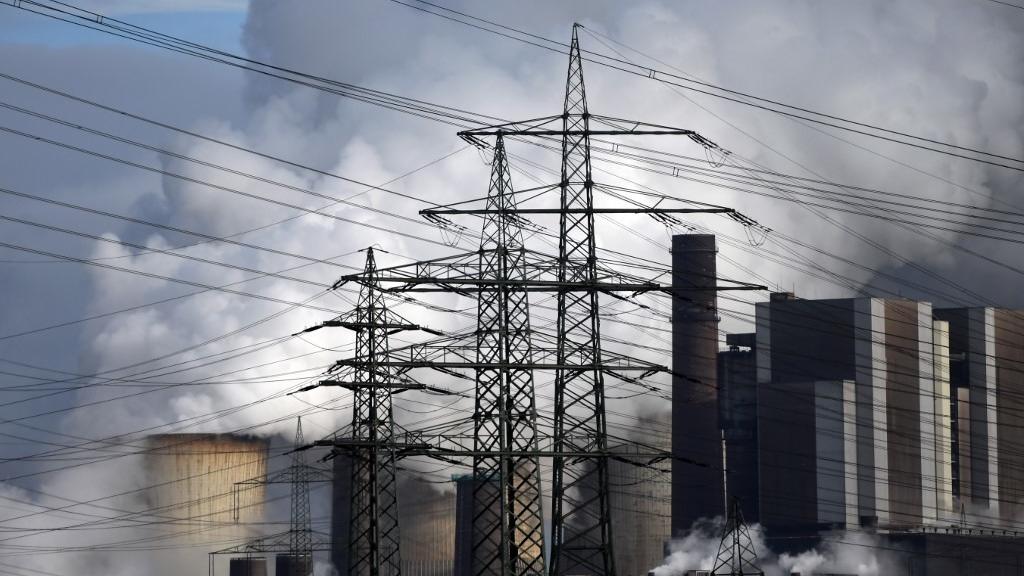 In this file photo dated Oct 28, 2021, smoke rises from a chimneys at a factory in Heiligengrabe, Germany. (PHOTO / AP)
In this file photo dated Oct 28, 2021, smoke rises from a chimneys at a factory in Heiligengrabe, Germany. (PHOTO / AP)
BERLIN - German goals to cut greenhouse emissions by 65 percent by 2030 are likely to be missed, meaning a longer-term net zero by a 2045 target is also in doubt, reports by government climate advisers and the Federal Environment Agency (UBA) show.
The European Union has sought to be a climate leader and Germany has set itself more ambitious targets than the bloc as a whole, but in many countries politics and the economic crisis have pushed the climate crisis down the agenda.
Germany, Europe's largest economy, aims to cut its carbon dioxide emissions by 65 percent by 2030 compared with 1990. Last year its CO2 levels were already 40 percent below the 1990 level, but the new reports said that was not enough.
"The expected overall reduction is probably overestimated," Hans-Martin Henning, the chairman of a council of climate experts that advises the government, said in a statement on Tuesday.
The German government has ordered 130 measures in various sectors. The buildings and transport sectors in particular are failing to implement them, the council of government climate advisers' report said.
Germany, Europe's largest economy, aims to cut its carbon dioxide emissions by 65 percent by 2030 compared with 1990. Last year its CO2 levels were already 40 percent below the 1990 level, but the new reports by government climate advisers and the Federal Environment Agency (UBA) showed that was not enough
The buildings sector is expected to be 35 million tonnes of CO2 short of target by 2030, while the transport sector is expected to have excess emissions of between 117 million and 191 million tonnes compared with the government target.
Tuesday's advisers' report coincided with another from the UBA that found that Germany cannot become climate neutral by 2045 on the basis of planned and existing government climate policy.
It drafted two scenarios, one for current policy and one for planned, that found that only 82 percent and 86 percent of targeted emissions cuts compared to 1990 would be achieved.
"According to the current status, Germany would still emit 229 million tonnes of climate-damaging greenhouse gas emissions in the target year 2045," the UBA report found.
ALSO READ: 'Germany's climate efforts not enough to hit 2030 targets'
Government promises
The economy ministry said policies it has implemented since the current government took office in late 2021 would cut around 80 percent of the surplus CO2 emissions it said were a legacy of policies by the previous government. It also said the coalition government would examine the council's findings to try to get the country on target.
Under pressure from the pro-business FDP party, the ruling coalition in June agreed to dilute a bill to phase out oil and gas heating systems from 2024. The changes would contribute to the building sector missing its targets, the report found.
 In this file photo dated Jan 26, 2021, electricity pylons are seen in front of the cooling towers of the coal-fired power station of German energy giant RWE in Weisweiler, western Germany. (PHOTO / AFP)
In this file photo dated Jan 26, 2021, electricity pylons are seen in front of the cooling towers of the coal-fired power station of German energy giant RWE in Weisweiler, western Germany. (PHOTO / AFP)
Building minister Klara Geywitz said the sector was making progress but needs improvements in some areas to close the emissions gap, adding that climate protection measures should be practical and doable to avoid overtaxing people.
Germany's economy ministry said policies it has implemented since the current government took office in late 2021 would cut around 80 percent of the surplus CO2 emissions it said were a legacy of policies by the previous government. It also said the coalition government would examine the findings from a council of climate experts that advises the government to try to get the country on target
"We will discuss the recommendations and information from the reports, evaluate the planned measures and continuously adapt them," Geywitz said in an emailed statement.
The transport sector accounts for two-thirds of the emissions remaining to be cut, the UBA report showed.
The council said assumptions made by the transport ministry on the effectiveness of the planned and already implemented measures, such as a discounted national rail ticket, a CO2 surcharge on truck tolls and increased working from home, were also optimistic.
"Private vehicle individual transport is not addressed, so to speak. And that is ultimately a gap in the transport program," Brigitte Knopf, deputy chairwoman of the council, told a news conference presenting the report findings on Tuesday.
The transport ministry said it had already introduced effective measures to cut emissions but climate neutrality could only be achieved step by step in accordance with social justice and economic issues.
READ MORE: Germany must tighten climate change law, top court rules
"The development of climate-friendly and affordable solutions that meet the mobility needs of citizens and companies is an ongoing task," a spokesperson for the ministry said.
Non-profit group Deutsche Umwelthilfe (DUH) in response to the reports said an emergency climate program was needed, especially for the transport sector.
It said it would take legal action to try to enforce a speed limit on German motorways, which currently have no limits on how fast motorists can drive, and to reduce government subsidies that harm the environment, such as tax relief for company cars.


